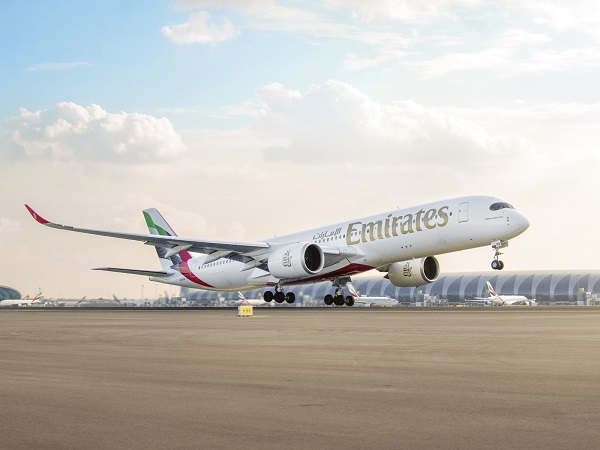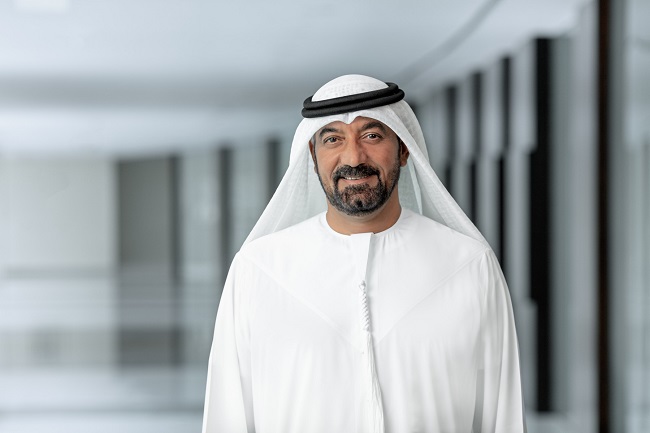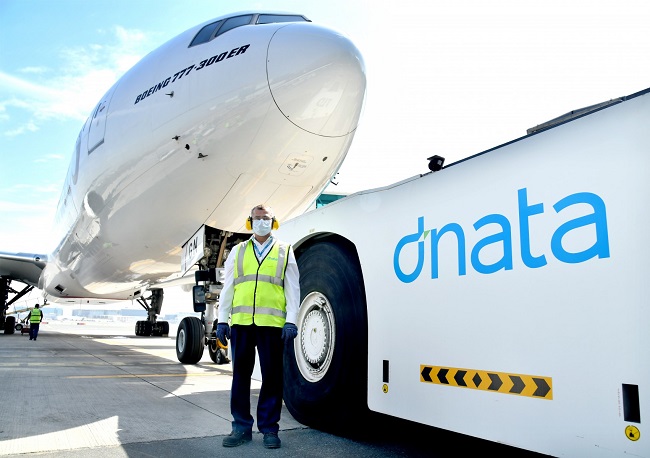The Emirates Group has released its 2024-25 Annual Report, achieving new record profit, EBITDA, revenue, and cash balance levels. This outstanding performance places the Emirates Group as the most profitable aviation group globally in the 2024-25 reporting period, with Emirates reporting the best result in its history to become the world’s most profitable airline.


The Emirates Group has reported its strongest-ever financial results for the fiscal year ending March 31, 2025. With record-breaking figures across profit, revenue, EBITDA, and cash reserves, the Group has firmly established itself as the world’s most profitable aviation entity.
Emirates airline, the Group’s flagship carrier, also achieved the highest individual profit in its history. Emirates and its airport services provider, dnata, both contributed significantly to this achievement through global expansion and growing demand for premium offerings.
The Group posted a record pre-tax profit of AED 22.7 billion (US$ 6.2 billion), up 18% year-on-year. Total revenue rose to AED 145.4 billion (US$ 39.6 billion), a 6% increase from the previous year. The Group’s cash balance reached AED 53.4 billion (US$ 14.6 billion), growing 13%, and EBITDA hit a record AED 42.2 billion (US$ 11.5 billion), up 6%. After accounting for a new 9% corporate tax, the Group’s post-tax profit stood at AED 20.5 billion (US$ 5.6 billion). A dividend of AED 6.0 billion (US$ 1.6 billion) has been declared for its owner, the Investment Corporation of Dubai (ICD).
His Highness Sheikh Ahmed bin Saeed Al Maktoum, Chairman and Chief Executive of Emirates airline and Group, credited Dubai’s strategic vision and supportive leadership for this exceptional growth. “When Emirates was launched 40 years ago, and dnata’s capabilities were expanded, our goal was clear—be the best and deliver value to Dubai and our stakeholders,” he said. He highlighted the Group’s enduring focus on high-quality services, investment in technology and talent, and a long-term view that avoids short-term shortcuts.
Sheikh Ahmed praised the workforce of over 121,000 for driving the Group to new heights in profit, revenue, and liquidity. “Thanks to our people, partners, and customers, we’ve achieved a historic year. We’re grateful for their trust and support,” he said. He also acknowledged


Dubai’s leadership, including HH Sheikh Mohammed bin Rashid Al Maktoum, for steering the city’s development with a clear strategy in which the Group plays a vital role.
In 2024-25, the Emirates Group invested AED 14.0 billion (US$ 3.8 billion) in new aircraft, infrastructure, acquisitions, and advanced technologies. Headcount rose 9% to 121,223 globally, reflecting sustained recruitment to support growth.
Looking ahead, Sheikh Ahmed voiced optimism for 2025-26, expecting growth despite potential headwinds like trade disruptions and travel restrictions.
Emirates will enhance connectivity with 16 new A350 aircraft and 4 Boeing 777 freighters scheduled for delivery. Its retrofit program continues, ensuring consistent onboard experiences across its widebody fleet. Dnata is also investing in key infrastructure, with new cargo facilities nearing completion in Amsterdam, Dubai, and Erbil. Planning is underway at Al
Maktoum International Airport (DWC) and Dubai South to redefine future aviation experiences. Emirates: A Year of Unmatched Airline Performance
Emirates airline posted its best-ever results, with a pre-tax profit of AED 21.2 billion (US$ 5.8 billion), a 20% jump from the previous year. Revenue climbed to AED 127.9 billion (US$ 34.9 billion), up 6%, while cash reserves hit AED 49.7 billion (US$ 13.5 billion), a 16% increase.
Total passenger and cargo capacity rose 4% to 60.0 billion ATKMs, nearing pre pandemic levels. Emirates added two new destinations—Bogotá and Madagascar— and resumed flights to several cities, expanding service to 148 destinations
in 80 countries. Codeshare and interline partnerships expanded to 151 airlines, offering access to over 1,750 destinations. Four Airbus A350s joined the fleet this year, debuting Premium Economy and a next-gen entertainment system. Emirates’ retrofit program was expanded to 219 aircraft, with a US$ 5.0 billion investment.
The airline’s total fleet stood at 260 aircraft with an average age of 10.7 years. The order book included 314 aircraft: 61 A350s, 205 Boeing 777X, 35 Boeing 787s, and 13 Boeing 777Fs.


Revenue gains were tempered by currency devaluations in key markets, costing AED 718 million (US$ 196 million). Operating cash flow reached AED 40.8 billion (US$ 11.1 billion). Fuel remained the largest cost component at 31% of operating costs, slightly down from 34% in 2023-24.
Emirates’ fuel bill decreased to AED 32.6 billion (US$ 8.9 billion), due to lower fuel prices and efficient hedging, despite a 5% rise in fuel consumption.
Emirates posted an after-tax profit of AED 19.1 billion (US$ 5.2 billion), up from AED 17.2 billion (US$ 4.7 billion) last year, with a profit margin of 14.9%. Passenger numbers rose to 53.7 million, with a seat load factor of 78.9% and yields stable at 36.6 fils per RPKM (10 US cents). Investments in customer experience included AED 63 million for lounge upgrades and two new lounges in London Stansted and Jeddah. Emirates now operates 41 lounges worldwide. The Chauffeur-Drive service was expanded to Riyadh, and Emirates World travel stores launched in eight cities with AED 34 million in investments.
Emirates SkyCargo: A Vital Growth Engine Emirates SkyCargo had a standout year, transporting 2.3 million tonnes of cargo—up 7%. Revenue hit AED 16.1 billion (US$ 4.4 billion), contributing 13% of the airline’s total. Cargo yields rose 10%, returning to pre-pandemic levels.41 dnata: Diversified and Resilient Growth Dnata increased its pre-tax profit by 2% to AED 1.6 billion (US$ 430 million), with revenue growing 10% to AED 21.1 billion.
Strong performance across its airport, catering, and travel services contributed to the results.Dnata’s airport operations benefited from rising global travel volumes, while its catering arm expanded offerings and reached new markets. Investments in facilities and technology are ongoing, especially in Dubai and overseas stations.
With a solid foundation, diversified business model, and continued investment, the Emirates Group is well-positioned for future growth. The Group’s 2024-25 success story is a testament to its strategic clarity, operational excellence, and the unmatched leadership that continues to drive the aviation industry forward from its Dubai hub.
Also Read
FAITH’s National Tourism Conclave on August 12- 13
Watch on Youtube
